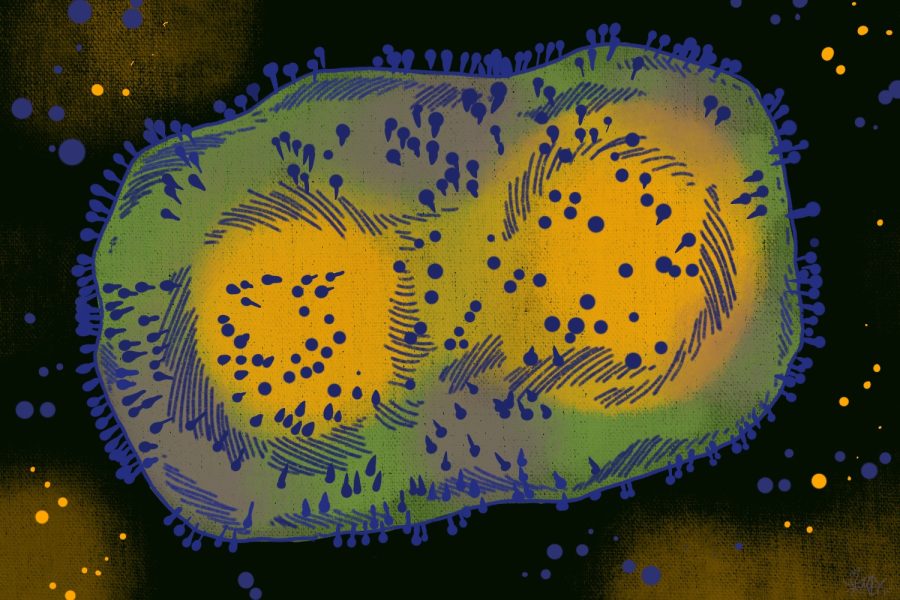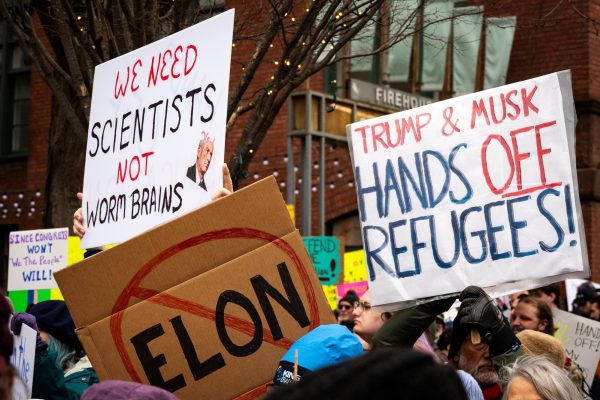No immediate University response plans in place for monkeypox
UVM’s response to the rising threat of monkeypox is a low-level concern, said Michael Schirling, chief safety and compliance officer.
Monkeypox, also known as hMPXV, is an emerging public health emergency that UVM students may encounter this fall. However, students will not see restrictions like those they saw over the past two and a half years during the COVID-19 pandemic, Schirling said.
“[Monkeypox] is not as transmissible and probably most importantly […] is a known virus,” Schirling said. “As a result, there are vaccines and treatments available.”
While monkeypox is a public health emergency, it is not a global pandemic in the way COVID-19 was, Schirling said.
The U.S. Department of Health website designated COVID-19 as a public health emergency Jan. 31, 2020, and later as a global pandemic March 11, 2020, according to their website. Monkeypox was designated as a public health emergency Aug. 4, 2020.
“We do expect that there will be outbreaks of COVID continuing,” he said. “It would be surprising to have an outbreak of hMPXV. However, [while] it’s possible, it’s just quite a bit more preventable as it is not airborne.”
UVM held a virtual live session Aug. 22 that provided information on the potential effects monkeypox may have on students this fall, in addition to COVID-19 updates.
Students will be able to mitigate the spread of monkeypox with informed behavior, said Michelle Paavola, director of student health.
“Knowing the symptoms [of hMPXV] and understanding the best preventative practices are great tools to help our community stay safe. If you have sex or close physical contact with many people you will have a higher chance of getting hMPXV,” Paavola said.
The best ways to prevent monkeypox include covering exposed skin in crowds, not sharing bedding or clothing and being aware of sexual partners’ health, the presentation stated.
Monkeypox symptoms include flu-like symptoms, as well as rashes and painful or itchy blisters, Paavola said.
Many of the practices students have adopted throughout the COVID-19 pandemic also serve as great preventative measures against monkeypox. Schirling recommends students browse the Vermont Department of Health’s website for more educational information.
“The highlights of those [websites] are the same as some of the basic COVID precautions. Wash your hands and be cautious if you’ve got any indication that you may have the virus,” Schirling said.
Senior Maddie Houston does not think the University is doing enough to protect its students, she said. Houston, who has spent much of her time at UVM studying infectious diseases as a molecular genetics major, feels the University’s response has been disappointing.
“Monkeypox—and anything that could become an endemic issue—is not something that should just get a footnote,” she said.
Houston fears the messaging regarding monkeypox exudes a false sense of comfort to students, she said.
“The messaging was that the majority of these cases are happening in men who have sex with other men. And so people went, ‘Oh, so I don’t actually have to care about this,’ when in reality, no, anyone can get it,” she said.
In contrast, senior Lia Pickholtz is not nearly as concerned about monkeypox as she has been about COVID-19, she said.
“I’m not really worried about monkeypox because it’s not as transmissible as COVID. You can’t get it from going to the store or sitting in class,” Pickholtz said. “The medical community has more knowledge on this disease because this virus has been around for a while. There is more research and information on it.”
If a student fears they may have monkeypox they should seek care immediately, Paavola said during the virtual event.
Paavola did not respond to the Cynic’s multiple requests for comment.










